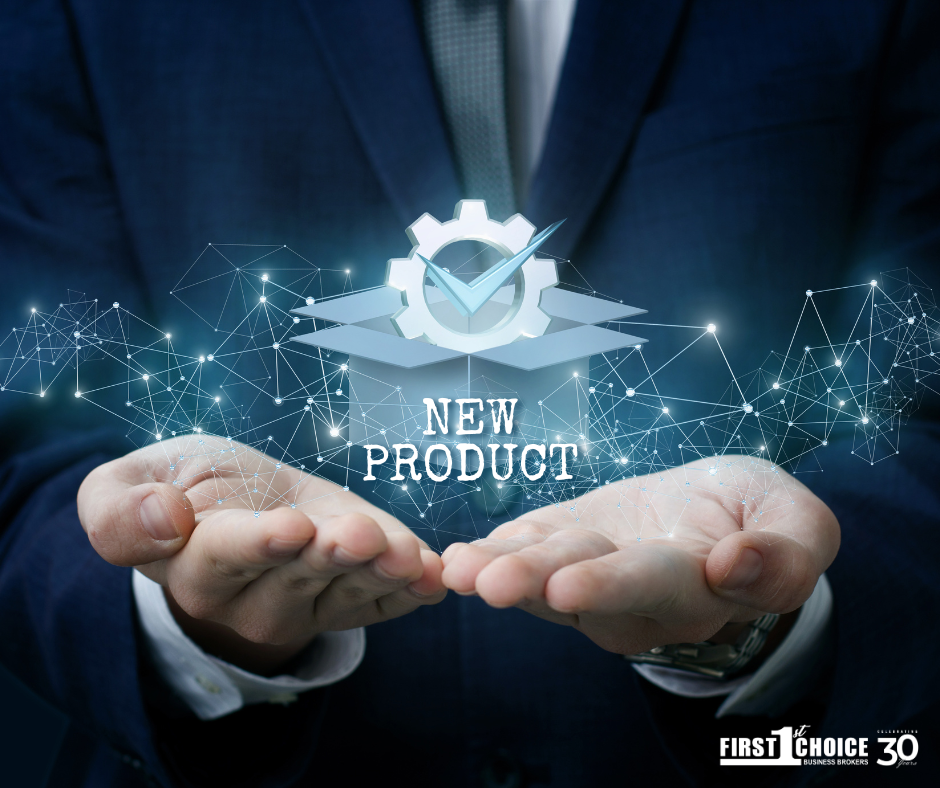Innovative Product Development Techniques - From Concept to Launch: Bringing New Products to Market

Bringing a new product to market is both an art and a science, and as a seasoned business broker, I've witnessed the various successes and challenges companies face during this process. In today’s fast-paced market, continual innovation is essential for staying competitive. This blog post explores innovative product development techniques to streamline the process, mitigate risks, and enhance the likelihood of a successful product launch, covering stages from market understanding and ideation to prototyping, refinement, and effective marketing strategies.
Key Takeaways
- Understanding the Market and Identifying Opportunities
- Ideation and Concept Development
- Prototyping and Testing
- Refinement and Production Planning
- Effective Marketing Strategies for Product Launch
Understanding the Market and Identifying Opportunities
The cornerstone of successful product development lies in a deep and comprehensive understanding of the market landscape. This involves more than just surface-level observations; it requires thorough and strategic market research to identify gaps, uncover consumer needs, and anticipate emerging trends. Start by analyzing competitors to understand what is already available and where the market is lacking. Survey potential customers to gather insights directly from the source, and leverage advanced data analytics to detect patterns and preferences that might not be immediately obvious.
- Consider a company in the fitness industry that notices a growing trend towards home workouts. By diving deep into market data, they discover a significant demand for compact and versatile exercise equipment that can fit into small living spaces. This insight propels them to develop a product specifically designed to meet this need, capturing a segment of the market that is rapidly expanding.
Ideation and Concept Development
With market opportunities clearly identified, the next critical step is ideation and concept development. This stage is where creativity meets strategy. Utilize a range of techniques such as mind mapping to visually explore different ideas, SWOT analysis to assess strengths, weaknesses, opportunities, and threats, and creative workshops to foster innovation. Engaging a diverse team from various departments can provide different perspectives and enhance the brainstorming process.
- Imagine a tech startup that organizes a series of brainstorming sessions with cross-functional teams. They incorporate design thinking workshops, where they collaboratively develop several promising product concepts. After a thorough evaluation of feasibility and market potential, they decide to pursue the creation of a smart wearable device that tracks comprehensive health metrics, addressing an increasing consumer interest in personal health and wellness.
Prototyping and Testing
Prototyping is a pivotal phase in the product development process as it moves ideas from the theoretical to the tangible. Developing a minimum viable product (MVP) allows for testing core functionalities and gathering crucial user feedback. This step is essential for identifying any potential issues and areas that require improvement, thus saving significant time and resources before committing to full-scale production.
- The tech startup develops a basic prototype of their smart wearable device. They then conduct beta testing with a select group of users who provide feedback on various aspects such as usability, design, and overall performance. This feedback proves invaluable, highlighting necessary adjustments and enhancements that are made to ensure the product meets high standards and user expectations.
Refinement and Production Planning
Refining the product design based on prototype testing feedback is essential to meet and exceed customer expectations. Addressing issues, enhancing features, and ensuring the product aligns with the initial vision are critical steps. Concurrently, planning the production process involves detailed coordination, considering factors like supply chain logistics, manufacturing costs, and scalability to ensure smooth and efficient production.
- After refining the smart wearable device based on the feedback received during beta testing, the startup begins collaboration with manufacturers. They focus on sourcing high-quality materials and optimizing production efficiency, ensuring that the manufacturing process is scalable to meet the anticipated high demand. Detailed planning helps in avoiding potential bottlenecks and ensures a seamless transition from prototype to market-ready product.
Effective Marketing Strategies for Product Launch
The success of a new product often hinges on how well it is marketed. Developing a comprehensive marketing plan is crucial, encompassing digital marketing, social media campaigns, influencer partnerships, and public relations activities. Creating buzz and anticipation can significantly impact the product’s market entry, ensuring it captures the attention of potential customers from the outset.
- The tech startup launches an extensive pre-release campaign for their smart wearable device. They leverage the power of social media influencers and tech reviewers to build excitement and credibility around the product. Targeted advertisements and email marketing campaigns are deployed to reach specific segments of the market. On the day of the launch, the combination of these well-executed marketing strategies results in the product selling out within hours, demonstrating the impact of a strategic and cohesive marketing plan.
Conclusion
Bringing a new product to market is an intricate journey that requires a blend of strategic planning, creative thinking, and meticulous execution. By thoroughly understanding the market, fostering innovative ideas, rigorously testing prototypes, refining the product design, and implementing effective marketing strategies, businesses can navigate this complex process with greater confidence and success. Embracing these innovative product development techniques will not only streamline the journey but also significantly enhance the likelihood of a successful product launch.
FAQ
What is the importance of market research in product development?
Market research is essential as it provides a detailed understanding of consumer needs, market trends, and competitive landscapes. This information is critical for developing products that align with market demands and have a higher chance of success.
How can prototyping benefit the product development process?
Prototyping allows for the validation of product concepts, enabling businesses to test functionalities and gather user feedback early in the development process. This helps identify and address potential issues before large-scale production, reducing risks and costs.
What are some effective marketing strategies for a new product launch?
Effective marketing strategies include digital marketing, social media campaigns, influencer partnerships, public relations activities, and targeted advertising. Building buzz and anticipation through these channels can significantly enhance the product’s market entry and initial sales.
By following these innovative product development techniques, businesses can navigate the complex journey from concept to launch with greater confidence and success.
Get in Touch:
First Choice Business Brokerage Phoenix
📍 21640 N 19th Ave Suite C9, Phoenix, AZ 85027
📞 (623) 888-6190
Recent articles for you




